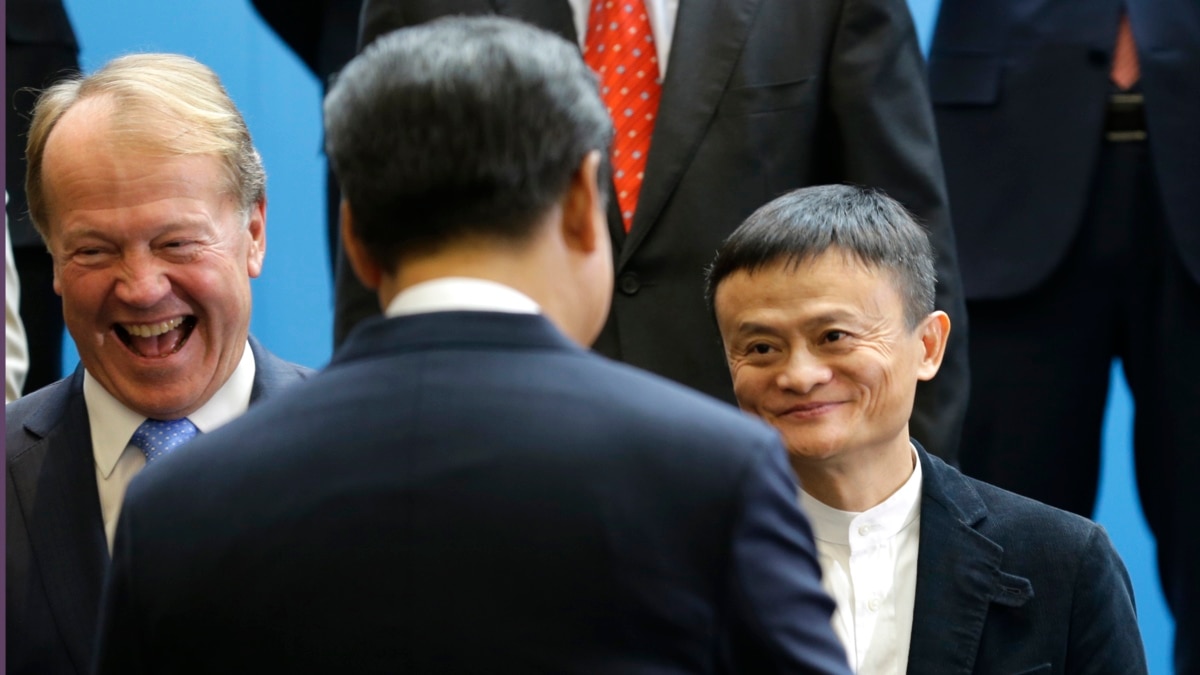China's Private Sector Faces Strategic Symposium
Chinese President Xi Jinping's upcoming symposium aims to rejuvenate China's private sector amidst external tensions and internal challenges, with business magnates like Jack Ma expected in attendance.
Published February 17, 2025 - 00:02am

Image recovered from voachinese.com
In a strategic move to invigorate confidence within China's private sector, President Xi Jinping is slated to preside over a symposium that will bring together influential business leaders including Jack Ma of Alibaba and Pony Ma of Tencent. The event, highly anticipated due to its rarity and the profile of its participants, aims to address a multitude of challenges currently confronting China's economic landscape.
The symposium underscores the considerable obstacles faced by China Inc., particularly in the wake of increasingly strained Sino-U.S. relations. The trade war initiated during Donald Trump's presidency has evolved into a technology battle with significant implications for Chinese businesses. These tensions have exerted pressure on China's tech industry, a focal point of the country's economic growth strategy.
Among the notable attendees will be Lei Jun, CEO of Xiaomi, and representatives from tech giant Huawei and robotics company Yushu Technology. Their participation highlights the symposium's significant emphasis on the technology sector, which has been one of the principal drivers of China's economic expansion. President Xi is expected to encourage these tech leaders to extend their operations both within China and globally, navigating through the complexities of the ongoing tech conflict.
Jack Ma's presence at the symposium could be particularly impactful on business sentiment. After his outspoken criticism of China's regulatory practices led to the halting of Ant Group's IPO in 2020 and subsequent regulatory scrutiny, Ma has largely remained out of the public eye. His attendance may signal a rehabilitative gesture, aimed at assuaging concerns and rebuilding rapport with the private sector. Such a move could restore some confidence, crucial during this period of economic recalibration.
The symposium is not just about addressing external pressures but also seeks to realign the private sector with the government's internal policies focused on achieving 'common prosperity.' President Xi has reiterated the need for private companies to be equitable in sharing the wealth generated, reflecting the broader national mandate to mitigate income inequality.
Chinese regulatory measures over recent years have sought to curb perceived excesses and speculative investments that could destabilize broader economic stability. This has involved regulatory crackdowns on tech giants, raising concerns about overregulation's impact on innovation and investment.
The symposium, reflecting President Xi's ongoing endeavor, recognizes the importance of the private sector in sustaining economic momentum amid declining domestic growth rates and increasing external competition. While China's government has introduced various fiscal measures to stimulate growth, tangible results remain elusive, emphasizing why the revitalization of business confidence is pivotal.
The participation of business leaders from some of China's most successful enterprises also signifies an introspective evaluation of past strategies and performances. The insights gathered from these emblematic leaders are crucial as the nation seeks innovative solutions to enhance economic resilience and growth.
Although the government's intentions to bolster the private sector are clear, the execution and reception of such initiatives pose significant questions. How these efforts translate into tangible strategies and outcomes will be essential in gauging their success and impact.
As China continues to assert its economic ambitions, the outcome of this symposium and subsequent policy implementations will play a pivotal role in shaping the nation's future economic trajectory and its positioning within the global marketplace.







